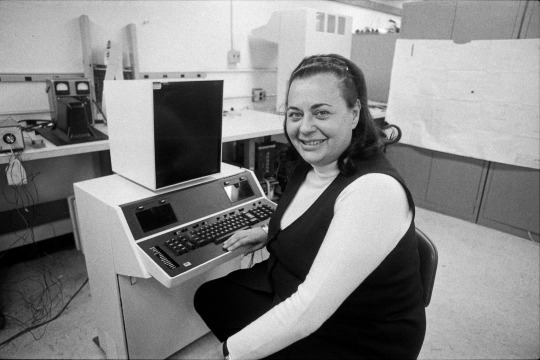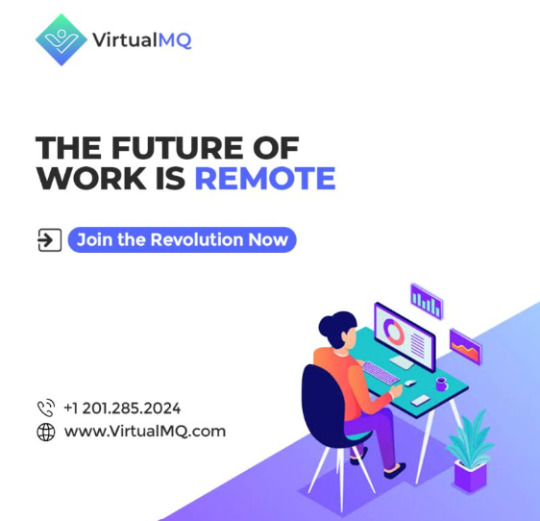#Remote Working Software Developer Jobs
Explore tagged Tumblr posts
Text
Exploring Career and Job Opportunities in Davao City Philippines
Davao City, recognized as one of the Philippines' most progressive cities, continues to experience remarkable economic growth, creating a vibrant job market that attracts professionals from across the country. The city's diverse economy offers numerous employment opportunities, from entry-level positions to executive roles, making it an attractive destination for job seekers at all career stages.
The Business Process Outsourcing (BPO) sector stands as one of the largest employers in Davao City, providing thousands of jobs across various specializations. Companies in this sector actively recruit customer service representatives, technical support specialists, and quality assurance analysts, offering competitive salaries and comprehensive benefits packages. The industry's continued expansion has created numerous opportunities for career advancement, with many organizations promoting from within and providing extensive training programs.
Part-time employment opportunities have also flourished in Davao City, catering to students, professionals seeking additional income, and individuals preferring flexible work arrangements. The retail sector, food service industry, and education field offer numerous part-time positions with varying schedules and responsibilities. These roles often provide valuable work experience and can serve as stepping stones to full-time careers.
The Information Technology sector in Davao has seen significant growth, with many companies seeking software developers, web designers, and IT support specialists. This growth has been fueled by the city's improving technological infrastructure and the increasing number of tech-focused businesses establishing operations in the region. Tech professionals can find opportunities in both established companies and startups, with many positions offering competitive compensation and the possibility of remote work arrangements.
Davao's hospitality and tourism industry continues to expand, creating jobs in hotels, restaurants, travel agencies, and tour operations. The sector offers positions ranging from entry-level service roles to management positions, with many employers providing training and development opportunities. The industry's growth has also sparked demand for professionals in events management and tourism marketing.
The education sector presents numerous opportunities for both full-time and part-time employment. Educational institutions regularly seek teachers, tutors, and administrative staff. The rise of online learning has created additional opportunities for English language teachers and academic consultants who can work flexible hours from home or teaching centers.
Job hiring in Davao, the digital economy has opened new avenues for employment. E-commerce specialists, digital content creators, and social media managers are in high demand as businesses increasingly establish their online presence. These positions often offer the flexibility of remote work while providing competitive compensation packages.
Professional development resources are readily available in Davao City, with numerous institutions offering skills training programs and industry certifications. Job seekers can access career counseling services, resume writing assistance, and interview coaching through various employment support organizations. These resources prove invaluable in helping candidates prepare for and secure desired positions.
The financial services sector in Davao has also experienced substantial growth, creating opportunities for banking professionals, insurance specialists, and investment consultants. These positions typically offer attractive compensation packages, including performance bonuses and health benefits, making them highly sought after by experienced professionals.
Davao's agricultural sector continues to evolve, combining traditional farming with modern agribusiness practices. This has created opportunities for agricultural technologists, food processing specialists, and supply chain professionals. The sector offers both technical and management positions, with many companies providing specialized training and development programs.
For those entering Davao's job market, proper preparation is essential. Successful job seekers typically maintain updated resumes, prepare comprehensive portfolios, and stay informed about industry developments. Professional networking, both online and offline, plays a crucial role in discovering opportunities and advancing careers in the city.
The future of Davao's job market looks promising, with emerging industries creating new employment opportunities. The city's commitment to economic development, coupled with its strategic location and robust infrastructure, continues to attract businesses and investors, ensuring a steady stream of job opportunities for qualified candidates.
Whether seeking full-time employment or part-time job in Davao City offers a diverse range of opportunities across multiple industries. Success in this dynamic job market often comes to those who combine proper preparation with continuous skill development and effective networking. As the city continues to grow and evolve, its job market remains a beacon of opportunity for professionals seeking to build meaningful careers in Mindanao's premier business hub.
#Davao City#recognized as one of the Philippines' most progressive cities#continues to experience remarkable economic growth#creating a vibrant job market that attracts professionals from across the country. The city's diverse economy offers numerous employment op#from entry-level positions to executive roles#making it an attractive destination for job seekers at all career stages.#The Business Process Outsourcing (BPO) sector stands as one of the largest employers in Davao City#providing thousands of jobs across various specializations. Companies in this sector actively recruit customer service representatives#technical support specialists#and quality assurance analysts#offering competitive salaries and comprehensive benefits packages. The industry's continued expansion has created numerous opportunities fo#with many organizations promoting from within and providing extensive training programs.#Part-time employment opportunities have also flourished in Davao City#catering to students#professionals seeking additional income#and individuals preferring flexible work arrangements. The retail sector#food service industry#and education field offer numerous part-time positions with varying schedules and responsibilities. These roles often provide valuable work#The Information Technology sector in Davao has seen significant growth#with many companies seeking software developers#web designers#and IT support specialists. This growth has been fueled by the city's improving technological infrastructure and the increasing number of t#with many positions offering competitive compensation and the possibility of remote work arrangements.#Davao's hospitality and tourism industry continues to expand#creating jobs in hotels#restaurants#travel agencies#and tour operations. The sector offers positions ranging from entry-level service roles to management positions#with many employers providing training and development opportunities. The industry's growth has also sparked demand for professionals in ev#The education sector presents numerous opportunities for both full-time and part-time employment. Educational institutions regularly seek t
0 notes
Text
There is a new remote job board that I figured. This could be a huge!
1 note
·
View note
Text
What are the Key Trends Shaping Modern Software Development?
A dynamic field always driven forward by new trends and discoveries, software development is situated in the ever-evolving environment of technology. Today, the software development industry is seeing the rise of numerous major trends that are changing the industry's environment as organizations in all industries strive for increased agility, scalability, and creativity.
The way software is conceived, created, and implemented in the digital era is being redefined by a number of developments, including the growing need for DevOps developers, the revolutionary impact of e-learning software development, and the widespread use of Agile methodology. We'll explore these trends in this blog post using three main points:
1. Demand for DevOps Developers
2. E-Learning Software Revolution
3. Agile Software Acceleration
1. Demand for DevOps Developers
In the contemporary software development landscape, the adoption of DevOps practices is paramount to ensure seamless collaboration between development and operations teams.
DevOps Integration:
By removing boundaries between development and operations, DevOps promotes a shared accountability and collaborative culture. DevOps experts with both development and operations expertise are in high demand from organizations because they can improve productivity and optimize the software delivery pipeline.
Automated CI/CD:
The foundation of DevOps practices is automation, which helps businesses automate tedious operations, optimize workflows, and hasten the software delivery process. By automating testing, integration, and deployment with CI/CD pipelines, DevOps engineers may guarantee the timely and dependable delivery of software updates and enhancements.
Cloud-Native Development:
As cloud computing becomes more widespread, DevOps developers are adopting cloud-native development techniques to create apps that are portable, scalable, and robust. By utilizing orchestration platforms like Kubernetes and containerisation technologies like Docker, enterprises can increase the flexibility, efficiency, and agility of the software solutions they deploy and manage.

2. E-Learning Software Revolution
In the wake of digital transformation, e-learning software development emerges as a transformative trend, reshaping the landscape of education and training across industries.
Personalized Learning Experiences:
Advanced technologies like artificial intelligence and machine learning are used by e-learning software developers to provide customized learning experiences that are suited to each learner's particular needs and preferences.
E-learning platforms may maximize learner engagement and success by delivering tailored content, assessments, and recommendations through the use of predictive analytics and adaptive learning algorithms.
Immersive Learning Spaces:
In order to build dynamic and captivating learning environments, e-learning software development incorporates immersive technologies such as augmented reality (AR) and virtual reality (VR).
Virtual reality (VR) and augmented reality (AR) based e-learning platforms improve understanding, retention, and the development of practical skills in a variety of fields, from manufacturing to healthcare, by mimicking real-world events and offering hands-on experiences.
Social Collaborative Learning:
Peer-to-peer engagement, information sharing, and community building among learners are facilitated by the social and collaborative features integrated into e-learning systems.
E-learning software facilitates worldwide cooperation by fostering a sense of belonging and collective learning through the use of discussion forums, group projects, and collaborative exercises. This allows learning to occur across geographical boundaries.
3. Agile Software Acceleration
Agility is essential in the fast-paced corporate environment of today to maintain competitiveness and adapt to changing consumer demands. Agile approaches become essential to contemporary software development, allowing companies to produce value in small increments and adjust swiftly.
Iterative Incremental Delivery:
Organizations can release important functionality to users more frequently and early by utilizing agile approaches, which place an emphasis on incremental software delivery and iterative development cycles.
Agile teams may make sure that software solutions match changing objectives and expectations by requesting feedback and incorporating user involvement throughout the development process.
Team Collaboration Dynamics:
Cross-functional teams with individuals who possess a range of talents and viewpoints are encouraged by agile to collaborate, be creative, and take joint responsibility for the project's results.
Agile approaches help teams adapt to shifting goals and market conditions by dismantling conventional hierarchical structures and promoting candid communication and teamwork.

Adaptation & Growth:
A culture of continuous improvement and adaptation is promoted by agile approaches, in which teams evaluate their operations, pinpoint areas for improvement, and modify their procedures repeatedly.
Agile teams promote a culture of learning, experimentation, and continuous growth through techniques like retrospectives, sprint reviews, and backlog refinement, which propels innovation and excellence in software development.
Conclusion
In conclusion, dynamic trends such as the increasing demand for DevOps developers, the expanding scope of software development for e-learning platforms, and the widespread adoption of Agile methodologies are reshaping the landscape of modern software development.
As organizations strive to remain competitive and drive value creation in today's digital economy, platforms like letsremotify provide invaluable resources for hiring top DevOps developers from a diverse talent pool. By embracing these trends, businesses can enhance collaboration, foster creativity, and improve adaptability, positioning themselves for success in an ever-evolving technological landscape.
FAQs about Key Trends in Modern Software Development
What are the key trends shaping modern software development?
Key trends include AI integration, cloud-native architecture, and DevOps practices, driving efficiency and innovation in software development.
How does AI integration impact modern software development?
AI integration enhances automation, predictive analytics, and personalized user experiences, revolutionizing software development processes.
Why is DevOps essential in modern software development?
DevOps streamlines collaboration between development and operations teams, enabling continuous integration, delivery, and deployment for faster, more reliable software releases.
#software development#information technology#hire developers#tech jobs#tech news#technology#toptal#tech trends#remote work
1 note
·
View note
Text
Mobile developers also have access to very well-paid remote roles that offer a lot of discretion over how they spend their time. In order to find these roles with major global brands, go to the best international center for remote work, RemoteHub. There's infinity and beyond in the Code.
#Mobile developer#RemoteHub#software#tech#jobs#jobseekers#jobposting#jobsearch#career#online jobs#remote work
0 notes
Text

1 note
·
View note
Text

Join the growing community of remote workers and enjoy the freedom to work from anywhere in the world 🌍
® Register today to live life on your own terms! https://lnkd.in/dvUSphaP
👉 Follow us Virtual MQ to stay updated in this space.
0 notes
Text
#data analyst#job of data analyst#data analyst role#data analyst work#data analyst software#remote data analyst jobs#data developer#top data analytics companies
0 notes
Text
applying for software developer jobs is so hellish because all the listings online are either defense contractors who offer high salaries with lots of benefits, on the job training, and flexible hours with remote work opportunities or some startup that pays way under market rate and demands you commute for an hour to their shitty office 5 days a week at 8 am sharp. and then every job that actually sounds tolerable wants you to have 5+ years experience in some technology you've never heard of. truly the stuff of nightmares
#I'm so sick of seeing job listings for northrop grumman 😭#I will not fucking compromise my morals for a paycheck I would rather be homeless#sigh....... my dreams of being a game dev seem further and further away every year#kvetching
88 notes
·
View notes
Note
heyyyyyyyyyyyy, what do you think of MC conjunct planets like uranus or venus ? do that mean that a capricorn MC conjunct Venus will be work in beauty related industries ? thanks
Yes yes yes!! For example, I have my Venus in the 10th house and I worked as a make up/skin care/parfume promoter! & I was really good at it as well and ended up getting bonuses because of the sales going up ☺️
Uranus in the 10th house/conjunct MC could mean a very unconventional job, remote job, an entrepreneurship, or something like a software developer or game inventor (something that is revolved around inventions and progression in the IT field)
#astrology#natal chart#horoscope#astro notes#zodiac#astro witch#astrology witch#astro community#synastry#astrology notes#10th house#MC#midheaven
29 notes
·
View notes
Note
just saw your response about writing a book and dreams and i wanted to ask like-- do you think you'd ever change careers to do that? im in the middle of trying to change careers right now and the market is straight doggy doodoo in the us, but also maybe egg on my face for applying right before the holidays. id like to think to those of us with wants and dreams there is a place. i think you're a bit older than i am, and i guess i want your opinion as someone a little more sage. idk sorry if this is too personal - i have noticed you like to keep your personal and kpoppie fandom life separate, so i wont press :3! happiness to all
such a great question!! so let me answer your question in a few parts bc honestly, the way careers and life work out in your twenties is so goddamn weird lol
so i went to school for literature and intended to go for the professor path, but realized pretty quick id be poor forever. so i bopped around job to job for a while feeling pretty unfulfilled, probably through my mid twenties. then i accidentally fell into a job at a small company where they let me switch over to the software dev team bc i surprisingly liked it / was good at it, and thats what ive been doing since. im 30 now, and to be honest, i make pretty good money doing that plus im able to fully work remotely and kind of have a flexible schedule.
so to answer your question….. no, i don’t think i would be willing to take the risk right now to try switching for writing but that’s largely because i finally like my job and im a little risk adverse as a person when it comes to my own finances.
i think realistically if i ever tried writing professionally it would be something i did in my off time like fic and then if i was able to make money doing that then maybe id switch paths. i have the flexibility for that given what i do, but thats just me.
for you, being a little younger in age and maybe your career though id give you this advice (as someone who changed careers) - you might need to start low on the totem poll to get into the career path you want, especially when switching, but do not let yourself work at lower pay for too long. no matter how great the company is etc., jobs that hire low experience and let you sink or swim are great for experience but they will never, ever pay you what you’re worth no matter how nice your bosses are. so if you get your foot in the door, crush it and get that resume built, and then get out in 1-2 years.
the other thing i’ll say is know your worth now. every job and degree gives you resume builders and skills you don’t even realize are marketable. focus on getting good at interviews so once you land one, you’ll get farther. people hire people they like, i guarantee im not the best developer but i am really personable and honest in an interview and it’s always got me a call back.
i would also say, career changing takes time. don’t be afraid to make money doing something you don’t love while you try for something else. it took me 2 years to transition from a job i didn’t love to doing something i enjoy for good money now, and it’s not my total dream job, but it affords me the time and money to enjoy my passions and that’s a good fit for me.
anyways i don’t know if this was helpful, but please don’t be shy to dm me here or on twt, i’d be happy to talk about my experiences or give you more advice on your situation.
i know it’s tough out there, but you got this! for the majority of my twenties i was really lost and struggling, but i promise if you stay the course and be honest with yourself the path in front of you gets clearer and easier to walk. 💗
9 notes
·
View notes
Text
We made it through just fine, we were without power for awhile but it’s been restored. Unfortunately my office is flooded so my job is working out where to put us. They are strangely hostile about telecommuting in my department though even though, as a software developer there is literally nothing I can’t do remotely. Some really dumb decisions being made for no logical reason other than “we feel like you might be less productive if you aren’t in our little corporate daycare” but that’s capitalism babeee
9 notes
·
View notes
Text

Evelyn Berezin in 1976 at the Long Island office of her company Redactron. She developed one of the earliest word processors and helped usher in a technological revolution. Evelyn Berezin said her word processor would help secretaries become more efficient at their jobs. Photo By Barton Silverman/New York Times.
Evelyn Berezin, “Godmother of the Word Processor!” The Woman That Made Bill Gates and Steve Jobs Possible
Evelyn Berezin (1925-2018) was born in the Bronx to poor Russian-Jewish immigrants. Growing up, she loved reading science fiction and wished to study physics. She excelled at school and graduated two years early. Berezin had to wear make-up and fake her age to get a job at a research lab. She ended up studying economics because it was a more “fitting” subject for women at the time. During World War II, she finally received a scholarship to study physics at New York University. Berezin studied at night, while working full time at the International Printing Company during the day. She continued doing graduate work at New York University, with a fellowship from the US Atomic Energy Commission. In 1951, she joined the Electronic Computer Corporation, designing some of the world’s very first computers. At the time, computers were massive machines that could only do several specific functions.

Evelyn Berezin, “Godmother of the Word Processor.” Born: April 12, 1925, The Bronx, New York City, NY — Died: December 8, 2018, ArchCare at Mary Manning Walsh Nursing Home & Rehabilitation Center, New York, NY
Berezin headed the Logic Design Department, and came up with a computer to manage the distribution of magazines, and to calculate firing distances for US Army artillery. In 1957, Berezin transferred to work at Teleregister, where she designed the first banking computer and the first computerized airline reservation system (linking computers in 60 cities, and never failing once in the 11 years that it ran). Her most famous feat was in 1968 when she created the world’s first personal word processor to ease the plight of secretaries (then making up 6% of the workforce).
“Without Ms. Berezin There Would Be No Bill Gates, No Steve Jobs, No Internet, No Word Processors, No Spreadsheets; Nothing That Remotely Connects Business With The 21st Century.” — The Times of Israel (12 December 2018)
The following year, she founded her own company, Redactron Corporation, and built a mini-fridge-sized word processor, the “Data Secretary”, with a keyboard and printer, cassette tapes for memory storage, and no screen. With the ability to go back and edit text, cut and paste, and print multiple copies at once, Berezin’s computer freed the world “from the shackles of the typewriter”. The machine was an in instant hit, selling thousands of units around the world. Berezin’s word processor not only set the stage for future word processing software, like Microsoft Word, but for compact personal computers in general. It is credited with being the world’s first office computer. Not surprisingly, it has been said that without Evelyn Berezin “there would have been no Bill Gates, and no Steve Jobs”.

Evelyn Berezin Pioneered Word Processors and Butted Heads With Men! A ‘loud woman,’ she studied physics and found that to get to the top she had to start her own company. Evelyn Berezin later became a mentor to entrepreneurs, venture capitalist and director of companies. Photo: Berezin Family. Wall Street Journal
“Why Is This Woman Not Famous?” British Writer Gwyn Headley Wrote In A 2010 Blog Post. — The Times of Israel
Redactron grew to a public company with over 500 employees. As president, she was the only woman heading a corporation in the US at the time, and was described as the “Most Senior Businesswoman in the United States”. Redactron was eventually bought out by Burroughs Corporation, where Berezin worked for several more years. In 1980, she moved on to head a venture capital group investing in new technologies. Berezin served on the boards of a number of organizations, including Stony Brook University and the Brookhaven National Laboratory, and was a sought-after consultant for the world’s biggest tech companies.
She was a key part of the American Women’s Economic Development Corporation for 25 years, training thousands of women in how to start businesses of their own, with a success rate of over 60%. In honour of her parents, she established the Sam and Rose Berezin Endowed Scholarship, paying tuition in full for an undergraduate science student each year. Sadly, Berezin passed away earlier this month. She left her estate to fund a new professorship or research centre at Stony Brook University. Berezin won multiple awards and honourary degrees, and was inducted into the Women in Technology International Hall of Fame.
#Evelyn Berezin#Business & Finance#Science & Technology#Steve Jobs#Bill Gates#Computers#Computer Science#Microsoft Word#New York University#Physics#Teleregister#Word Processor#WWII#Redactron#Belarusian 🇧🇾 Russian 🇷🇺 Jewish
7 notes
·
View notes
Text
Top 10 In- Demand Tech Jobs in 2025

Technology is growing faster than ever, and so is the need for skilled professionals in the field. From artificial intelligence to cloud computing, businesses are looking for experts who can keep up with the latest advancements. These tech jobs not only pay well but also offer great career growth and exciting challenges.
In this blog, we’ll look at the top 10 tech jobs that are in high demand today. Whether you’re starting your career or thinking of learning new skills, these jobs can help you plan a bright future in the tech world.
1. AI and Machine Learning Specialists
Artificial Intelligence (AI) and Machine Learning are changing the game by helping machines learn and improve on their own without needing step-by-step instructions. They’re being used in many areas, like chatbots, spotting fraud, and predicting trends.
Key Skills: Python, TensorFlow, PyTorch, data analysis, deep learning, and natural language processing (NLP).
Industries Hiring: Healthcare, finance, retail, and manufacturing.
Career Tip: Keep up with AI and machine learning by working on projects and getting an AI certification. Joining AI hackathons helps you learn and meet others in the field.
2. Data Scientists
Data scientists work with large sets of data to find patterns, trends, and useful insights that help businesses make smart decisions. They play a key role in everything from personalized marketing to predicting health outcomes.
Key Skills: Data visualization, statistical analysis, R, Python, SQL, and data mining.
Industries Hiring: E-commerce, telecommunications, and pharmaceuticals.
Career Tip: Work with real-world data and build a strong portfolio to showcase your skills. Earning certifications in data science tools can help you stand out.
3. Cloud Computing Engineers: These professionals create and manage cloud systems that allow businesses to store data and run apps without needing physical servers, making operations more efficient.
Key Skills: AWS, Azure, Google Cloud Platform (GCP), DevOps, and containerization (Docker, Kubernetes).
Industries Hiring: IT services, startups, and enterprises undergoing digital transformation.
Career Tip: Get certified in cloud platforms like AWS (e.g., AWS Certified Solutions Architect).
4. Cybersecurity Experts
Cybersecurity professionals protect companies from data breaches, malware, and other online threats. As remote work grows, keeping digital information safe is more crucial than ever.
Key Skills: Ethical hacking, penetration testing, risk management, and cybersecurity tools.
Industries Hiring: Banking, IT, and government agencies.
Career Tip: Stay updated on new cybersecurity threats and trends. Certifications like CEH (Certified Ethical Hacker) or CISSP (Certified Information Systems Security Professional) can help you advance in your career.
5. Full-Stack Developers
Full-stack developers are skilled programmers who can work on both the front-end (what users see) and the back-end (server and database) of web applications.
Key Skills: JavaScript, React, Node.js, HTML/CSS, and APIs.
Industries Hiring: Tech startups, e-commerce, and digital media.
Career Tip: Create a strong GitHub profile with projects that highlight your full-stack skills. Learn popular frameworks like React Native to expand into mobile app development.
6. DevOps Engineers
DevOps engineers help make software faster and more reliable by connecting development and operations teams. They streamline the process for quicker deployments.
Key Skills: CI/CD pipelines, automation tools, scripting, and system administration.
Industries Hiring: SaaS companies, cloud service providers, and enterprise IT.
Career Tip: Earn key tools like Jenkins, Ansible, and Kubernetes, and develop scripting skills in languages like Bash or Python. Earning a DevOps certification is a plus and can enhance your expertise in the field.
7. Blockchain Developers
They build secure, transparent, and unchangeable systems. Blockchain is not just for cryptocurrencies; it’s also used in tracking supply chains, managing healthcare records, and even in voting systems.
Key Skills: Solidity, Ethereum, smart contracts, cryptography, and DApp development.
Industries Hiring: Fintech, logistics, and healthcare.
Career Tip: Create and share your own blockchain projects to show your skills. Joining blockchain communities can help you learn more and connect with others in the field.
8. Robotics Engineers
Robotics engineers design, build, and program robots to do tasks faster or safer than humans. Their work is especially important in industries like manufacturing and healthcare.
Key Skills: Programming (C++, Python), robotics process automation (RPA), and mechanical engineering.
Industries Hiring: Automotive, healthcare, and logistics.
Career Tip: Stay updated on new trends like self-driving cars and AI in robotics.
9. Internet of Things (IoT) Specialists
IoT specialists work on systems that connect devices to the internet, allowing them to communicate and be controlled easily. This is crucial for creating smart cities, homes, and industries.
Key Skills: Embedded systems, wireless communication protocols, data analytics, and IoT platforms.
Industries Hiring: Consumer electronics, automotive, and smart city projects.
Career Tip: Create IoT prototypes and learn to use platforms like AWS IoT or Microsoft Azure IoT. Stay updated on 5G technology and edge computing trends.
10. Product Managers
Product managers oversee the development of products, from idea to launch, making sure they are both technically possible and meet market demands. They connect technical teams with business stakeholders.
Key Skills: Agile methodologies, market research, UX design, and project management.
Industries Hiring: Software development, e-commerce, and SaaS companies.
Career Tip: Work on improving your communication and leadership skills. Getting certifications like PMP (Project Management Professional) or CSPO (Certified Scrum Product Owner) can help you advance.
Importance of Upskilling in the Tech Industry
Stay Up-to-Date: Technology changes fast, and learning new skills helps you keep up with the latest trends and tools.
Grow in Your Career: By learning new skills, you open doors to better job opportunities and promotions.
Earn a Higher Salary: The more skills you have, the more valuable you are to employers, which can lead to higher-paying jobs.
Feel More Confident: Learning new things makes you feel more prepared and ready to take on tougher tasks.
Adapt to Changes: Technology keeps evolving, and upskilling helps you stay flexible and ready for any new changes in the industry.
Top Companies Hiring for These Roles
Global Tech Giants: Google, Microsoft, Amazon, and IBM.
Startups: Fintech, health tech, and AI-based startups are often at the forefront of innovation.
Consulting Firms: Companies like Accenture, Deloitte, and PwC increasingly seek tech talent.
In conclusion, the tech world is constantly changing, and staying updated is key to having a successful career. In 2025, jobs in fields like AI, cybersecurity, data science, and software development will be in high demand. By learning the right skills and keeping up with new trends, you can prepare yourself for these exciting roles. Whether you're just starting or looking to improve your skills, the tech industry offers many opportunities for growth and success.
#Top 10 Tech Jobs in 2025#In- Demand Tech Jobs#High paying Tech Jobs#artificial intelligence#datascience#cybersecurity
2 notes
·
View notes
Text
we’ll explore the impact of volunteer web developers, the benefits of volunteering in the tech sector, and how RemoteHub, a leading job marketplace and community, can be your gateway to meaningful volunteer opportunities.
#Volunteer Web Developers#software#jobs#jobseekers#jobsearch#career#employment#find remote jobs#remote work#online jobs
0 notes
Text
What Are the Current Trends Shaping Finance Recruitment in Toronto

The finance landscape in Toronto is evolving rapidly, influenced by technological advancements, changing workforce demographics, and shifting employer expectations. As organizations adapt to these changes, finance recruitment is also undergoing a transformation. Understanding the current trends shaping finance recruitment is crucial for both employers looking to attract top talent and candidates seeking to position themselves effectively in this competitive market.
In this blog post, we’ll dive into the key trends currently shaping finance recruitment in Toronto and examine their implications for the hiring landscape.
1. Emphasis on Diversity and Inclusion
One of the most prominent trends in finance recruitment today is the growing emphasis on diversity and inclusion. Companies are recognizing the value that diverse perspectives bring to decision-making and problem-solving within finance teams. This shift is prompting organizations to rethink their recruitment strategies, ensuring they attract candidates from various backgrounds, experiences, and demographics.
Finance recruitment experts in Toronto are at the forefront of this movement, helping organizations develop inclusive hiring practices. By broadening the talent pool, companies can foster innovation and create a more dynamic workplace culture. This focus on diversity not only enhances team performance but also aligns with the values of today’s workforce, making organizations more attractive to potential candidates.
2. The Rise of Remote and Hybrid Work Models
The COVID-19 pandemic has fundamentally altered how companies operate, leading to a surge in remote and hybrid work models. This shift has significant implications for finance recruitment in Toronto. Candidates are now seeking flexibility in their work arrangements, and organizations must adapt to meet these expectations.
The best finance recruitment agency in Toronto understands the importance of offering remote or hybrid options to attract top talent. Companies that embrace flexible work environments are better positioned to draw candidates who value work-life balance and autonomy. As this trend continues to evolve, finance recruiters will play a crucial role in connecting organizations with candidates who thrive in these modern work settings.
3. Increased Demand for Tech-Savvy Professionals
As technology continues to reshape the finance industry, there is a growing demand for tech-savvy professionals who can navigate the digital landscape. Skills in data analysis, financial modelling, and familiarity with financial software are becoming increasingly important for candidates in finance roles.
Finance recruitment experts in Toronto are adapting to this trend by prioritizing candidates with strong technical skills. Recruiters are now looking for individuals who not only possess traditional finance qualifications but also have experience with technology tools and platforms. This trend reflects a broader shift toward digital transformation within the finance sector, making it essential for candidates to continuously upskill and stay relevant in a competitive job market.
4. Focus on Candidate Experience
In a competitive job market, candidate experience has emerged as a critical factor influencing recruitment success. Organizations are recognizing that providing a positive candidate experience can help attract and retain top talent. This includes everything from clear communication during the hiring process to offering a seamless application experience.
The best finance recruitment agency in Toronto is focused on enhancing the candidate experience by providing valuable feedback, timely updates, and a personalized approach to recruitment. By prioritizing candidate engagement, organizations can foster a positive impression of their brand and improve their chances of securing the best talent available.
5. Adapting to Changing Employer Expectations
Today’s employers are looking for more than just technical skills; they seek candidates who can demonstrate adaptability, problem-solving abilities, and strong interpersonal skills. As the finance industry evolves, so do the expectations placed on finance professionals. Candidates who can showcase their ability to thrive in a fast-paced, dynamic environment are highly sought after.
Finance recruitment experts in Toronto are helping organizations identify candidates who not only meet the technical requirements but also embody the soft skills necessary for success in today’s finance landscape. By focusing on these attributes, companies can build well-rounded teams capable of navigating the complexities of the finance sector.
Understanding the current trends shaping finance recruitment in Toronto is essential for both employers and candidates. With a growing emphasis on diversity and inclusion, the rise of remote work, and the demand for tech-savvy professionals, organizations must adapt their recruitment strategies to attract top talent. Additionally, enhancing the candidate experience and aligning with changing employer expectations will be crucial for success in this competitive market.
At BJRC Recruiting, we are committed to helping you navigate the evolving landscape of finance recruitment. As the best finance recruitment agency in Toronto, our experienced team is dedicated to connecting organizations with the right talent to meet their unique needs.
Ready to streamline your finance recruitment process? Get in touch with BJRC Recruiting,and let us help you connect with the top talent that will drive your organization’s success!
Know more https://bjrcrecruiting.com/2024/11/29/toronto-finance-recruitment-trends/
3 notes
·
View notes
Text

We are seeing significant opportunities in remote jobs in the U.S, with more than 15% of the total job market being remote jobs now. Based on this trend, we are confident that remote work is here to stay.
🔥 Register with us, and you'll gain access to exclusive remote job opportunities that aren't available anywhere else.
Say hello to your dream job and take the first step towards your future career.
👉 Register: https://lnkd.in/dvUSphaP 👉 Follow us: https://lnkd.in/da4QmN9B
#remote work#job opportunities#jobboard#careeropportunities#work life balance#remote jobs#remote#workplace#software development
0 notes